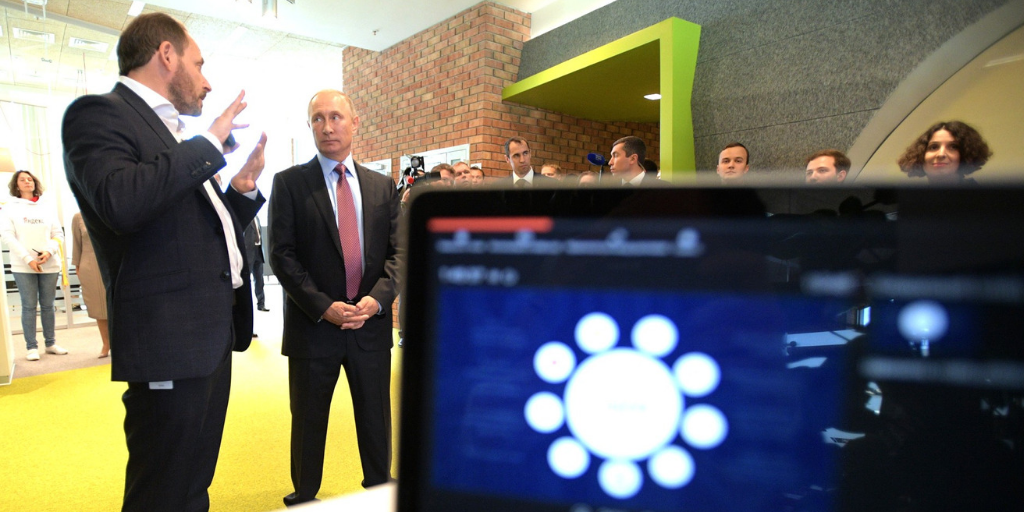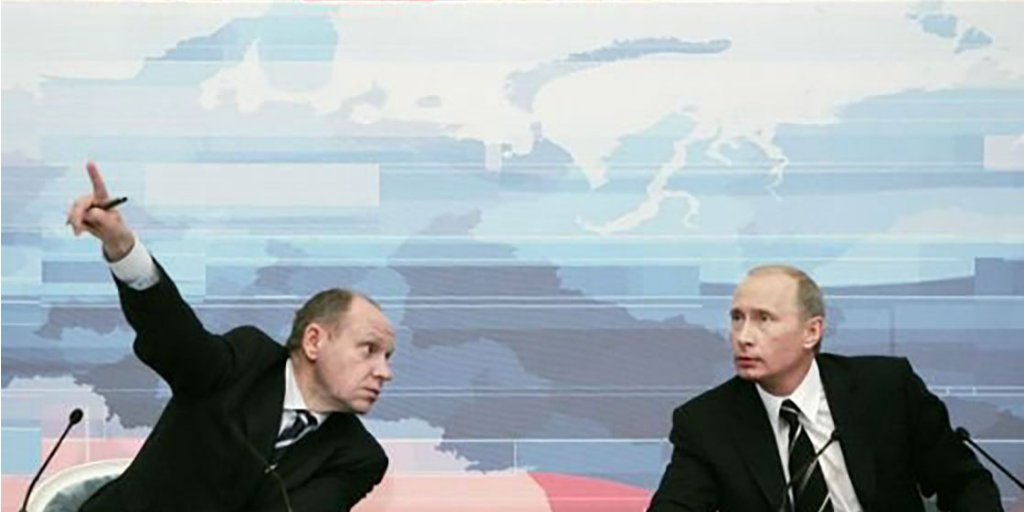
Is it possible for media to be a little bit free? Russian lawmakers vow to introduce a new law that will further limit the reach of independent voices and consolidate the dominance of the Kremlin-controlled and Kremlin-loyal, disinformation-oriented media.
As the spread of pro-Kremlin disinformation attracts increased attention as a global problem, it is important to also keep an eye how the same state-sponsored influence campaign develops inside Russia.
Russia’s parliament, the State Duma, is currently drafting new legislation, which shows that the authorities do not plan to loosen their grip on the domestic media scene; on the contrary, it becomes clear that in the Kremlin’s playbook, state-sponsored disinformation goes hand in hand with a desire to gain total control of the media.
The main target is Yandex
Members of the State Duma told media they planned to introduce a bill putting a limit on foreign ownership of Russian internet companies to 20%.
As reported by, among others, The Bell, RFE/RL and Meduza, the initiative could deliver a significant blow to Yandex, an internet company often referred to as “Russia’s Google” with its head office in the Netherlands and most of whose shares are traded at the Nasdaq Stock Exchange in New York.
Among several other services, Yandex runs Russia’s widely used news aggregator, Yandex Novosti, with 34 million unique users in July 2019, Meduza reports. According to the independent business outlet The Bell, one of the co-sponsors of the bill made it clear that the main targets are Yandex and its competitor, Mail.ru.
Should Yandex fall under increased dependency of the Kremlin, it would significantly disempower the company, especially as a channel for delivering online news and information. In that case, Yandex would suffer the fate of Russia’s largest social media platform, Vkontakte, whose previous owner and founder of Vkontakte, Pavel Durov, sold his share in the platform and chose exile in 2014, following what was seen as politically motivated pressure.
In an timeline also published in English, Meduza shows how this new development is just the latest in a three year long series of moves to specifically stress Yandex’s news aggregator service. Previously imposed pressure has already forced Yandex to e.g. exclude a number of media outlets from its aggregator, including the independent, Riga-based Meduza.
From TV to online dominance
The Kremlin already enjoys almost total dominance on the Russian television market with all three of Russia’s leading TV channels being state-controlled (Rossiya 1, Pervy Kanal, NTV).
However, Russian media consumption gradually changes: While TV remains in a dominating position, the share of online media use follows a global trend by growing steadily – especially among the younger audiences and audiences in Moscow and St. Petersburg. The losers in the competition among media formats are radio and, in particular, print media.

The practice of tolerating the existence of some independent media, but removing them from the important news aggregators, resembles the case from 2014 when Russia’s only independent TV channel TV Rain (Dozhd’) was forced to be removed from Russia’s cable TV packages. Since then, TV Rain has only been available through online transmission and satellite dishes.
In this light, it becomes difficult not to see the new draft law as a way of ensuring Kremlin-controlled and Kremlin-loyal media a leading position also on the online media scene.
Disinformation as mainstream
The Kremlin’s two international mouthpieces, RT and Sputnik, present themselves with the slogans “Question More” and “Telling the Untold.” Their message is unmistakable: In the West, Russian state media wish to be perceived as real alternatives to what RT and Sputnik rarely miss a chance to refer to as “the mainstream media”.
In Russia, this relationship is turned upside down: Here, the Kremlin-controlled and Kremlin-loyal media outlets dominate the media scene; and, as the new draft law shows, Russian authorities facilitate this dominance and want to leave less and less room for media that question more of what goes on inside Russia and tell otherwise untold stories to Russian audiences.
Clearly, the Kremlin thinks that media should only be allowed to be a little bit free – at least in Russia, which ranks as low as #149 out of the 180 countries listed in the 2019 World Press Freedom Index. By keeping independent media in a marginal position and by taking control over the channels they use to reach audiences, such as Yandex, Russian authorities can allow state-sponsored disinformation to remain Russia’s mainstream.




